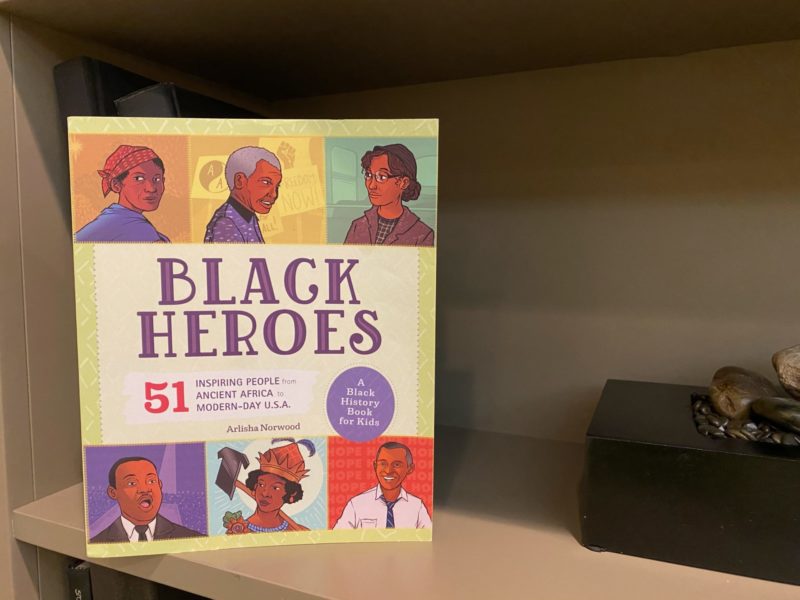Editor's Note
Arlisha R. Norwood received her PhD in history from Howard University. Her research examines the experiences of single African American women in post-Civil War Virginia. She has written several publications on the topic including, “A Father in My Affliction: African American Women and their Wartime Letters to President Lincoln” featured in Lincoln Lore magazine and “African American Widows in Post-emancipation Maryland,” published by the Association of Black Women Historians. In addition to research, she focuses on developing her passion for public history. She has worked for several museums, historic sites and cultural organizations including the Smithsonian Institution’s National Museum for African American History and Culture and the National Park Service. She remains committed to engaging a broader audience and transmitting her love for history through innovative and exciting methods.
What is the origin story of your book Black Heroes: how did the book come about, and why did you choose to write it?
As a child I was introduced to history by reading historical fiction and non-fiction. Just like Black Heroes, the books were often colorful with age appropriate content. I especially liked biographies. Reading biographical works taught me about the amazing life of Harriet Tubman and Josephine Baker. For a short time the books gave me an opportunity to get lost in the lives of others. After finishing graduate school, I always dreamed of writing a children’s book that would allow young readers to get lost in the past. Therefore, I thought I was daydreaming when I was approached by a publisher to write Black Heroes. I immediately agreed. While writing the book I really enjoyed reminiscing about my introduction to history and how it changed my life.
Generally intellectual history refers to the history of ideas in action. Can you tell us about a few of the Black heroes and how they contributed to intellectual history?
Since the book covers such a wide scope of time there are so many heroes who have made contributions to intellectual history. There are some obvious choices like famed abolitionist Frederick Douglass and W.E.B. Dubois, a prominent African American scholar but there are also others like Ida B. Wells Barnett, one of the leading anti-lynching and women’s rights activist in the 20th century. Intellectual historians will find that almost every biography highlights some contribution to the field.
You have a background in public history. Generally public history refers to the bridge between academia and the museum world. How did public history principles influence your book?
As a public historian I am committed to making history accessible to everyone. I am aware that history sometimes gets a bad reputation for being a boring and repetitive subject. I want to make sure that the discipline is captivating in and outside the classroom. While writing the book I made sure all the components were attractive to readers. Specifically, I was intentional with the language and the illustrations. I wanted to present biographical subjects in a dynamic and engaging way. I hope that readers sense my passion for history and my dedication to bringing the discipline to the forefront in new and exciting ways.
How do you view your book’s contribution to the historical field broadly construed?
Although there are many children’s biographical books on the market I think Black Heroes gives readers a chance to learn about a diverse group of men and women who changed the world. The range of people covered shows how broad the field is and how much there is to learn.
Can you tell us about your intended audience, and what do you hope they take from it?
The book was written for ages 8-12. However, I believe that this work can be enjoyed by all age groups. I hope that readers are able to find commonalities with the “heroes” and think about how they can change the world with their passion and gifts.


0